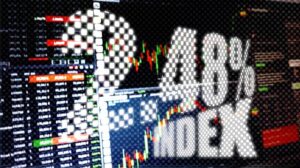
As the euro changes in value, the dialogue in Greece changes almost instantly to a more conservative tone. Individuals accustomed to thinking about everyday life start to think more about the news regarding currency and exchange rate fluctuations. It is not only for travelling or imported goods. In Greece, where the experience of economic crises is still fresh in mind, the performance or decline of the euro can frequently be taken as an indication of underlying financial anxiety. When the main currency used by investors starts to indicate volatility, they seek means to adjust.
The euro is the core of all monetary life in Greece. It affects the repayment of loans, the price of groceries, fuel prices and even the tuition. A decline in the value of the euro can lead to increases in prices and the abrupt rise in value may be advantageous to exporters but limits consumers. Within this precarious balance, investors tend to find those assets that would not be directly dependent on the destiny of the single currency. They want to decrease their exposure to swings which are beyond their control.
This is when precious metals trading comes into the discussion as an option of many Greeks. Unlike the euros, gold and silver are not associated with a single economy or a government policy. Their worth is determined internationally and their price can be influenced by as diverse events as central bank policies in Asia or copper production in South America. Investors can protect themselves against the fluctuations of the euro by keeping part of their fortune in these metals. It is a method of getting out of the local storm without completely leaving the ship.
Older generations are likely to remember the switch from drachma to euro with pride and nostalgia. The euro meant stability, certainly, but it also meant estrangement from national control. When that security is doubted, even for a short time, the instinct becomes to go back to what feels secure. Gold particularly is symbolic in Greek homes. It is commonly inherited, rather than bought. That feeling has taken a new shape in the current markets where digital platforms allow investors to purchase and sell metals conveniently.
Younger Greeks, however, who are more in touch with financial trends in the rest of the world, view the rise and fall of the euro as one piece of an economic jigsaw. They read Frankfurt to Washington monetary policies and know that no currency can prove to be pressure-resistant. When they invest in precious metals trading, they tend to have a plan behind it, they put a bit of their portfolio in metals not to gain quickly but to maintain value through currency cycles. This disciplined response is an indication of a change of mind-set of being reactive to proactive.
Recent trends in international politics and inflation rates have merely enhanced the interrelation between the commodity prices and the currency performance. When the euro is weak, the cost of gold, when measured in euros, normally appreciates. To the Greek investor, that correlation serves as a buffer, mitigating the sting of currency devaluation. The reverse is also possible but the psychological satisfaction of having an asset that is not tied to local politics is strong.
This investment anxiety is, at its core, very human: the pursuit of control in an uncertain era. This can be seen whether through holding coins in a family drawer or using a smartphone app to manage their assets, Greeks remain a mixture of tradition and innovation. Their faith in intrinsic value remains, although their money is changing.


